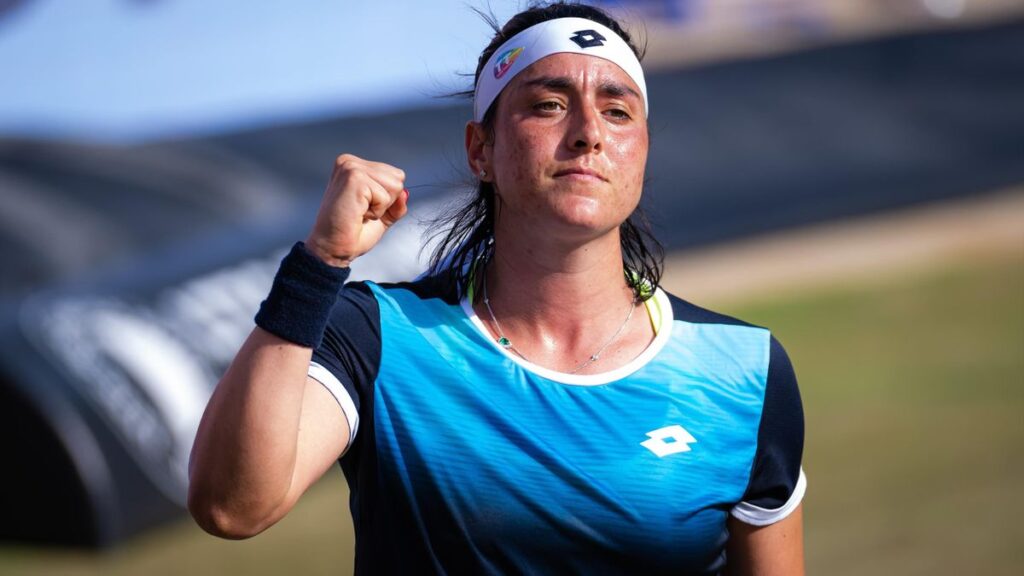Ons Jabeur, the former Wimbledon finalist, has voiced sharp criticism of the French Open for the consistent exclusion of women’s matches from primetime night sessions. Since the introduction of night matches at Roland Garros in 2021, the spotlight has overwhelmingly been on men’s singles matches, leaving female players sidelined during the tournament’s most visible and prestigious time slots.
Despite the popularity and high quality of women’s tennis, the French Open’s schedule has largely ignored female competitors for these evening matches. In fact, last year, all 11 primetime matches were men’s singles encounters, and this year the pattern continues, with none of the night sessions featuring women’s singles. The latest night match scheduled pits 12th seed Holger Rune against world No. 137 Emilio Nava, underscoring the tournament’s continued preference for men during peak viewing hours.
This scheduling approach has drawn sharp rebuke from Jabeur, who condemned the decision-makers behind the scenes. She remarked on the disappointing message this sends about the value placed on women’s tennis, saying, “Whoever is making the decision, I don’t think they have daughters, because I don’t think they want to treat their daughters like this.” Her comment highlights the frustration that many feel regarding the ongoing disparity in how male and female athletes are showcased and promoted, especially at one of tennis’s most prestigious events.
The French Tennis Federation president recently sparked controversy by defending the schedule, stating it is designed to be “better for spectators.” This reasoning has not sat well with Jabeur, who called out the logic as flawed and unfair. She pointed out that the lack of women’s matches during prime viewing hours only perpetuates a cycle where men’s matches attract more viewers simply because they are given more exposure. “It’s a bit ironic,” Jabeur said, “They don’t show women’s sport, they don’t show women’s tennis, and then they ask the question, ‘Yeah, but mostly they watch men.’ Of course they watch men more because you show men more.”
Her criticism extends beyond the tournament organizers to the broadcasting partners, including Amazon Prime, which secured a contract that has failed to promote women’s tennis during the most important time slots. Jabeur stressed that many top female players deserve equal prominence. She cited recent matches involving stars like Naomi Osaka, Paula Badosa, and Iga Swiatek—matches that were exciting and highly competitive but were still overlooked for prime scheduling.
Jabeur’s frustration reflects a broader concern about the treatment and visibility of women’s sports in Europe. She called it “unfortunate” that female athletes continue to be marginalized and their matches relegated to less desirable times or channels. The lack of fair exposure not only affects the players’ recognition but also influences the growth and development of women’s tennis by limiting its audience reach.
This issue is particularly stark given the high level of competition and star power in the women’s draw. Fans and players alike have expressed disappointment that thrilling matches involving top-ranked women are not being given the platform they deserve. Jabeur herself was eliminated in the first round, suffering a straight-sets defeat, but her comments underline a wider battle for equality that extends beyond any one player’s results.
The debate over primetime scheduling at Roland Garros serves as a microcosm of the challenges facing women’s sports globally. While progress has been made in some areas, events like the French Open still have significant strides to take to ensure that female athletes receive equal treatment and opportunities to shine on the biggest stages.
In calling out the French Open’s schedule, Jabeur is advocating for more than just better airtime; she is demanding respect and recognition for women’s tennis, a sport filled with talent, passion, and dramatic competition deserving of the limelight. Until changes are made, the message remains clear: women’s matches are not yet being valued equally in the world’s top tournaments.

